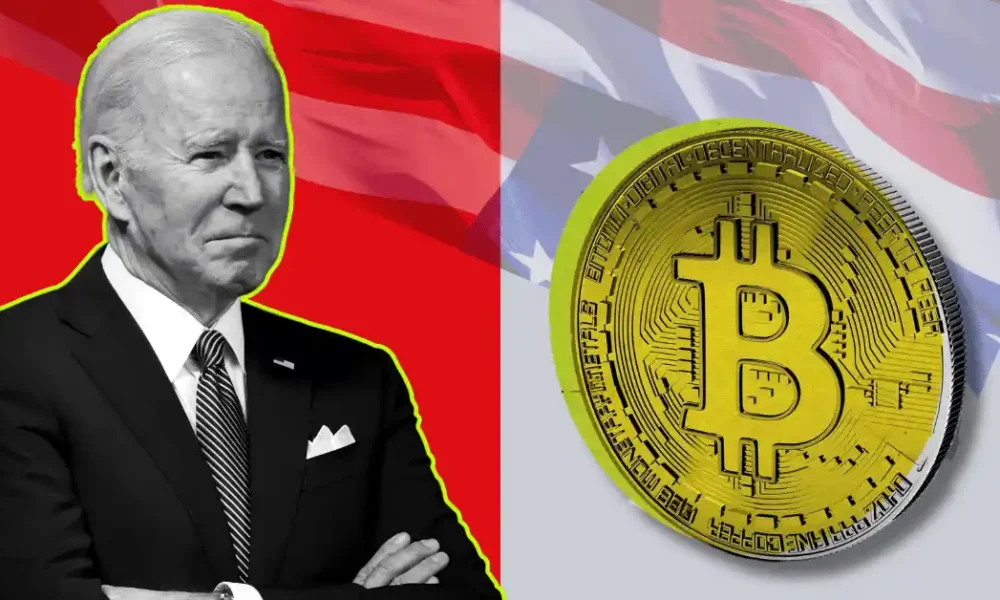Regulation
Top Crypto Policies This Election Year

In the current US election season, crypto is a key topic, with around 40% of voters, according to a Digital Currency Group survey, wanting candidates to address it. Despite past opposition, the Republican candidate Donald Trump now supports the crypto industry. Congressional Republicans aim to overturn a Democrat-backed rule preventing banks from offering crypto custody services. To understand US President Joe Biden’s stance on crypto, let’s look at the major developments under his administration related to crypto markets. Ready to explore?
1. Biden administration and crypto markets: what policies and actions convey
Here is the timeline of major developments this year that may explain the Biden administration’s attitude towards the cryptocurrency market.
- May 8, 2024: The Biden administration blocks banks from offering custody of cryptocurrencies, adhering to SEC guidelines for consumer protection and financial stability.
- April 13, 2024: Concerns have been raised over Russia’s use of stablecoins to evade sanctions, highlighting the risks of illicit financing.
- April 3, 2024: The US government is selling more Bitcoin reserves, impacting market sentiment and prices, demonstrating its active involvement in crypto.
- March 16, 2024: Treasury is investigating $165 million in crypto transactions potentially linked to Hamas, with a focus on cracking down on illicit financing.
- March 3, 2024: Senators introduce legislation against CBCS, citing privacy concerns and advocating for decentralized finance alternatives.
- February 6, 2024: Congressional call for regulatory oversight of the digital asset sports market to promote market integrity and investor protection.
- February 1, 2024: The United States imposes reporting requirements on crypto miners to address environmental concerns, aiming to ensure the sustainability of mining.
- January 10, 2024: US SEC Approves Bitcoin Spot ETFs, Signaling Acceptance of Crypto Assets in Traditional Financial Markets.
Let’s analyze each development to understand how the Biden administration thinks.
1.1. Biden Admin Veto of Crypto Resolution on Banking Crypto Custody
The Biden administration’s veto of the resolution allowing U.S. banks to offer cryptocurrency custody services underscores a cautious regulatory approach. In following SEC guidance, the Administration is prioritizing consumer protection and financial stability. The move demonstrates a reluctance to rush into liberalizing crypto services, underscoring a stance focused on regulatory oversight rather than rapid expansion.
1.2. US Admin’s Allegation on Russia’s Use of Stablecoins
Expressing concerns over Russia’s use of stable coins to escape sanctions, the administration is vigilant against illicit financial activities facilitated by crypto assets. This highlights a proactive stance in combating financial crime and rogue state activities in the crypto space. Such actions underscore the administration’s commitment to safeguarding national security interests.
1.3. Sale of Bitcoin Stash by the United States
The decision to sell more of the country’s Bitcoins indicates the government’s active involvement in the crypto market. The move has the potential to impact market sentiment and prices, highlighting the administration’s ability to influence crypto markets. The decision reflects a pragmatic approach to managing government-held crypto assets, balancing budgetary considerations with market dynamics.
1.4. US investigation into crypto transactions
The U.S. Treasury Department’s investigation into crypto transactions linked to terrorism financing reflects the administration’s commitment to combating illicit financing. By calling for increased oversight and regulation, the administration aims to mitigate the risks associated with crypto-related financial crimes. This strengthens the resolve to uphold regulatory standards and enforce compliance within the crypto industry.
1.5. Legislation in the United States against the Biden administration’s CBDC plan
The introduction of legislation banning central bank digital currencies suggests skepticism towards government-controlled digital currencies. This reflects concerns about privacy and government surveillance, highlighting a commitment to individual freedoms and financial autonomy.
1.6. Call for regulatory oversight
Congressional calls for regulatory oversight of the digital asset sports market underscore the administration’s efforts to close regulatory gaps. This reflects a commitment to promoting market integrity and investor protection within the crypto industry. The administration’s support for comprehensive regulation demonstrates a desire to foster a transparent and orderly market environment.
1.7. The American government. Imposition of a reporting obligation for cryptocurrency miners
Imposing reporting requirements on cryptocurrency miners demonstrates a commitment to environmental sustainability. By addressing concerns about energy consumption and environmental impact, the administration aims to mitigate negative externalities associated with cryptocurrency mining. This reflects a proactive approach to balancing innovation and environmental responsibility within the crypto sector.
1.8. US SEC Approval of Bitcoin Spot ETFs
US SEC Approval of Bitcoin Spot ETFs signals a move towards greater acceptance of cryptocurrencies in traditional financial markets. The move reflects a push to embrace crypto assets as legitimate investment vehicles, thereby improving market access for retail and institutional investors. The administration’s support for crypto mainstreaming underscores recognition of the sector’s growth potential and economic importance.
Endnote
In conclusion, these developments reflect the Biden administration’s cautious but proactive approach to regulating the cryptocurrency market. It highlights a commitment to consumer protection, financial stability, national security and environmental sustainability. Through regulatory oversight, combating illicit financing, and innovation, the administration seeks to navigate the complexities of the evolving crypto landscape while balancing economic growth and regulatory accountability.
Also read how the laws and regulations affecting blockchain technology and cryptocurrencies, like Bitcoin, may impact its adoption.
